Related Research Articles

The American Enterprise Institute for Public Policy Research, known simply as the American Enterprise Institute (AEI), is a center-right think tank based in Washington, D.C., that researches government, politics, economics, and social welfare. AEI is an independent nonprofit organization supported primarily by contributions from foundations, corporations, and individuals.
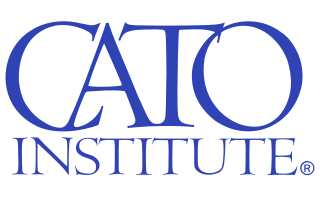
The Cato Institute is an American libertarian think tank headquartered in Washington, D.C. It was founded in 1977 by Ed Crane, Murray Rothbard, and Charles Koch, chairman of the board and chief executive officer of Koch Industries. Cato was established to focus on public advocacy, media exposure, and societal influence.

Patrick J. Michaels was an American agricultural climatologist. Michaels was a senior fellow in environmental studies at the Cato Institute until 2019. Until 2007, he was research professor of environmental sciences at the University of Virginia, where he had worked from 1980.
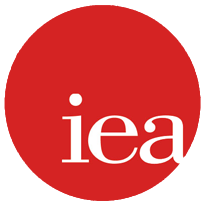
The Institute of Economic Affairs (IEA) is a British right-wing free market think tank, which is registered as a charity. Associated with the New Right in the United Kingdom, the IEA describes itself as an "educational research institute", and says that it seeks to "further the dissemination of free-market thinking" by "analysing and expounding the role of markets in solving economic and social problems".

The Fraser Institute is a libertarian-conservative Canadian public policy think tank and registered charity. It is headquartered in Vancouver, with additional offices in Calgary, Toronto, and Montreal. It has links to think tanks worldwide through the Economic Freedom Network and is a member of the free-market Atlas Network.

Thomas Gordon Palmer is an American libertarian author and theorist, a Senior Fellow at the Cato Institute and Vice President for International Programs at the Atlas Network.
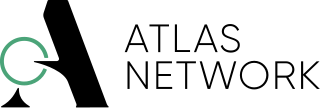
Atlas Network, formerly known as Atlas Economic Research Foundation, is a non-governmental 501(c)(3) organization based in the United States that provides training, networking, and grants for libertarian, free-market, and conservative groups around the world.
The Social Affairs Unit is a right-leaning think tank in the United Kingdom. Founded in 1980 as an offshoot of the Institute of Economic Affairs, it publishes books on a variety of social issues. Its website notes that "many SAU supporters are inclined to believe that the generation which fought the Second World War were rather too keen on social engineering over the goals of personal responsibility".
Steven J. Milloy is a lawyer, lobbyist, author and former Fox News commentator. Milloy is the founder and editor of the blog junkscience.com.
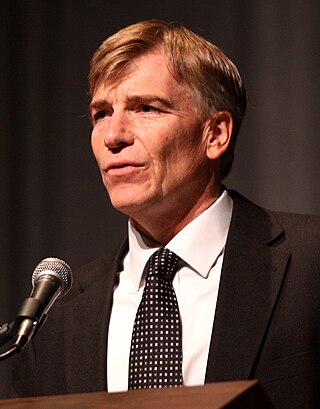
Ivan Eland is an American defense analyst and writer. He is a Senior Fellow and Director of the Center on Peace and Liberty at the Independent Institute. Eland's writings generally propose libertarian and non-interventionist policies. Books that he has authored include Recarving Rushmore.
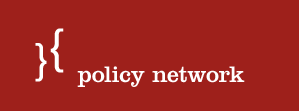
Policy Network was an international centre-left think tank based in London. The President of Policy Network was former UK First Secretary of State and EU Trade Commissioner Lord Mandelson; Lord Liddle was Chairperson.

Health policy can be defined as the "decisions, plans, and actions that are undertaken to achieve specific healthcare goals within a society". According to the World Health Organization, an explicit health policy can achieve several things: it defines a vision for the future; it outlines priorities and the expected roles of different groups; and it builds consensus and informs people.
Gio Batta Gori is an epidemiologist and fellow with the Health Policy Center in Bethesda, Maryland which he established in 1997 and where he specializes in risk assessment and scientific research. He was deputy director of the United States' National Cancer Institute's Division of Cancer Cause and Prevention, where he directed the Smoking and Health Program and the Diet and Cancer Program.
The Involve Foundation is a UK based charity "working with governments, parliaments, civil society, academics and members of the public to create, advocate for and deliver new forms of public participation", like, for example, citizens' assemblies. Its headquarters are in Bethnal Green in Central London, and it has offices in Scotland and Northern Ireland.

Christopher J. Coyne is the F.A. Harper Professor of Economics at George Mason University and the associate director of the F. A. Hayek Program for Advanced Study in Philosophy, Politics, and Economics at the Mercatus Center.
Patrick Basham is a former adjunct scholar and senior fellow of the Cato Institute, and the founding Director of the Democracy Institute. Basham was previously the founding director of the Social Affairs Centre at the Canadian Fraser Institute. He has published a number of books and contributed articles to a range of major US newspapers.
John C. Luik was a senior fellow of the Democracy Institute. A Rhodes Scholar attached to Hertford College at the University of Oxford, he was a Senior Associate of the Niagara Institute with responsibility for its work in public policy and its Values and Organizational Development programmes." From 1977 to 1990 he taught philosophy and ethics at two Canadian universities, but was dismissed from each for misrepresenting his academic credentials. He acted on behalf of the tobacco industry amongst others and was prominent in criticising the evidence related to the claimed links between passive smoking and cancer.
MPOWER is a policy package intended to assist in the country-level implementation of effective interventions to reduce the demand for tobacco, as ratified by the World Health Organization (WHO) Framework Convention on Tobacco Control. The six evidence-based components of MPOWER are:
The Manhattan Institute for Policy Research is an American 501(c)(3) nonprofit conservative think tank focused on domestic policy and urban affairs. The institute's focus covers a wide variety of issues including healthcare, higher education, public housing, prisoner reentry, and policing. It was established in Manhattan in 1978 by Antony Fisher and William J. Casey.

The tobacco industry playbook, tobacco strategy or simply disinformation playbook describes a strategy used by the tobacco industry in the 1950s to protect revenues in the face of mounting evidence of links between tobacco smoke and serious illnesses, primarily cancer. Such tactics were used even earlier, beginning in the 1920s, by the oil industry to support the use of Tetraethyllead in gasoline. They continue to be used by other industries, notably the fossil fuel industry, even using the same PR firms and researchers.
References
- 1 2 Democracy Institute, About Us Archived 2010-11-26 at the Wayback Machine , accessed 8 August 2010
- ↑ "Democracy Institute - TobaccoTactics". tobaccotactics.org. Retrieved 2020-11-08.
- 1 2 Cato Institute, Patrick Basham, accessed 8 August 2010
- ↑ "Democracy Institute, 10 June 2015". Archived from the original on 26 November 2010. Retrieved 8 August 2010.
- ↑ John Luik (2006), "A Picture of Health? Why Graphic Warnings Don't Work Archived 2014-04-03 at the Wayback Machine ", Democracy Institute